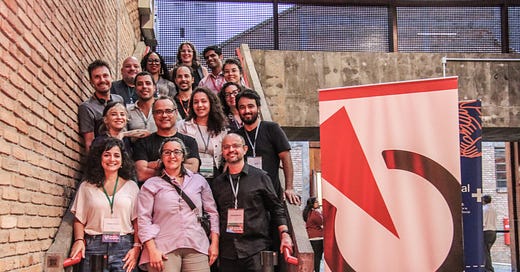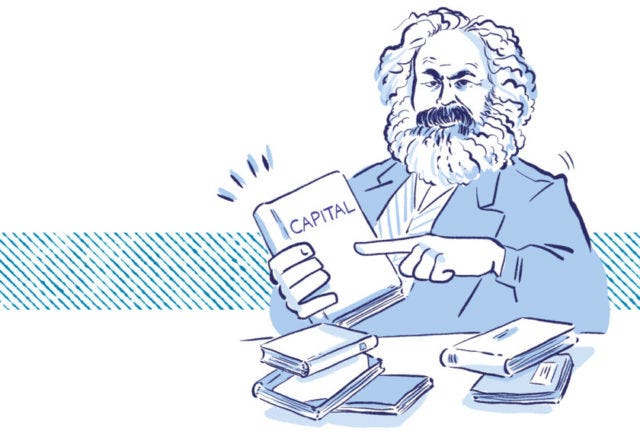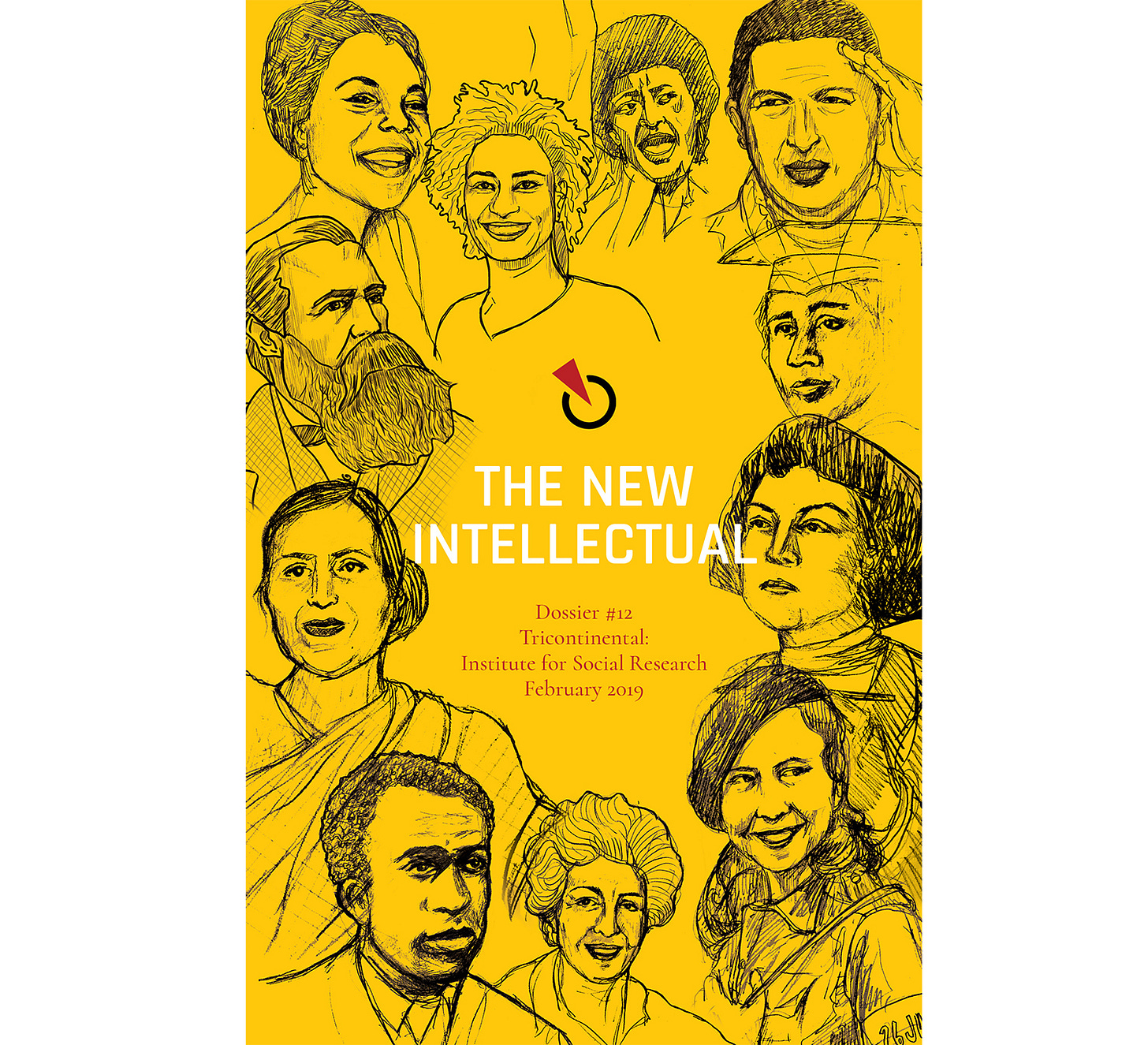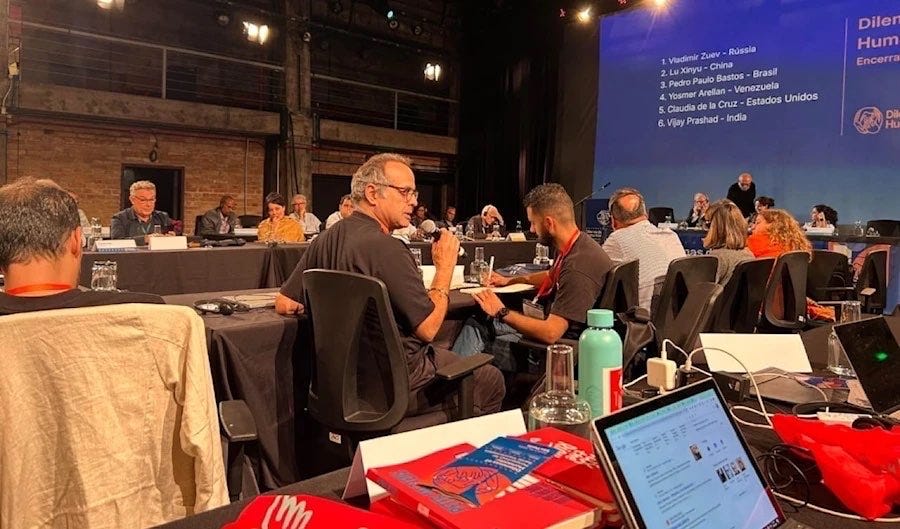Over the past ten years, I have been involved with the building of Tricontinental: Institute for Social Research. The idea behind the institute is pretty simple. We believe that Marx’s 11th Thesis on Feuerbach is incorrectly understood. Marx wrote: Philosophers have hitherto only interpreted the world in various ways; the point is to change it. In fact, he actually wrote: Die Philosophen haben die Welt nur verschieden interpretiert, es kömmt drauf an, sie zu verändern. But you get the point.
We believe that Marx meant that those who try to change the world have a clearer understanding of it. In other words, liberals might want to believe that their ideals are in fact reality. Try telling that to a police officer when you argue for your basic human right to protest on the street. The club on your head is an indication of reality. If you try to change you world, you test the world’s ideals and its values and you therefore have a better understanding of its material conditions.
Based on that rather simple proposition, Tricontinental builds its understanding of the world as our researchers - who are themselves participants in movements - accompany movements that try to transform the world. This act of accompaniment provides the epistemological foundation for our truth. It is where we derive our understanding of the world.
Since 2018, when the institute was founded, we have built an enormous archive of material on the structure and process of capitalism and imperialism, on the emergence of neo-fascism, and on the possibility of a future produced by the struggles of our social and political movement. One of the great joys of our work has been that we are always able to build our theory from the struggles and then take our provisional theories back to the struggle to see if those who struggle see themselves in the theory. If not, it is back to the adjustment process.
Reading Gramsci’s notes on intellectuals helped us develop our idea of the ‘new intellectual’, which is something central to our work. We wrote about this in a dossier from 2019 called The New Intellectuals. We found three different kinds of intellectuals in Gramsci’s prison notebooks:
Organic Intellectuals: Every class has its intellectuals who are organic to that class. The economist who works in a bank is as organic to the bourgeoisie as the rural intellectual who can help other farmers figure out what kind of blight has struck their crops. These are intellectuals of a certain class, organic to that class in the sense that they provide knowledge for that class.
Traditional intellectuals: The elites have a set of intellectuals - such as academics and priests - who operate to transmit the values of the elites onto all of society and to transmit these values not as the narrow values or knowledge of a class but of universal society. These are the traditional intellectuals who help to produce hegemony of the elite over society.
New intellectuals: Some organic intellectuals of the working-class and peasantry or those who throw themselves into the projects of liberation of these classes see the conditions of these classes, interpret them against the ruling ideas, and produce a radical understanding of the world. Their views emerge but might dissipate unless they are rooted in a social or political movement, preferably in a political party of some kind. Gramsci calls these intellectuals the new intellectuals, those who throw themselves into ‘active participation in practical life, as constructor, organiser, permanent persuader’. Our model of intellectual activity is predicated on the idea of the permanent persuader.
Over these eight years, we have investigated our own movements, tried our best to understand the neo-fascists, and spent time trying to pierce together an accurate reading of the historical process. What we found, in all this, is that the left understands very clearly the failures of the system as it is but we do not have a dynamic development theory for when the left or even the centre left comes to power. We just finished a fascinating event in São Paulo, Brazil, the Dilemmas of Humanity IV, where we discussed the need for a new development theory for the Global South. We will soon systematise our learning and publish that in a document for you to read.
But that meeting, and another in Shanghai, allowed parts of our team to gather, and so here below, are members of our team - the new intellectuals - whom I love and cherish:
Don’t forget to subscribe to our materials. And, if you can, donate to us. We appreciate the support.









I’m German by birth, so I love to see it quoted, even when I understand it better in English. My defense of this view is a quote from a German scholar whose response to a new English translation of Kant was: “Finally! Finally I think I understand what he was talking about.”
🙌